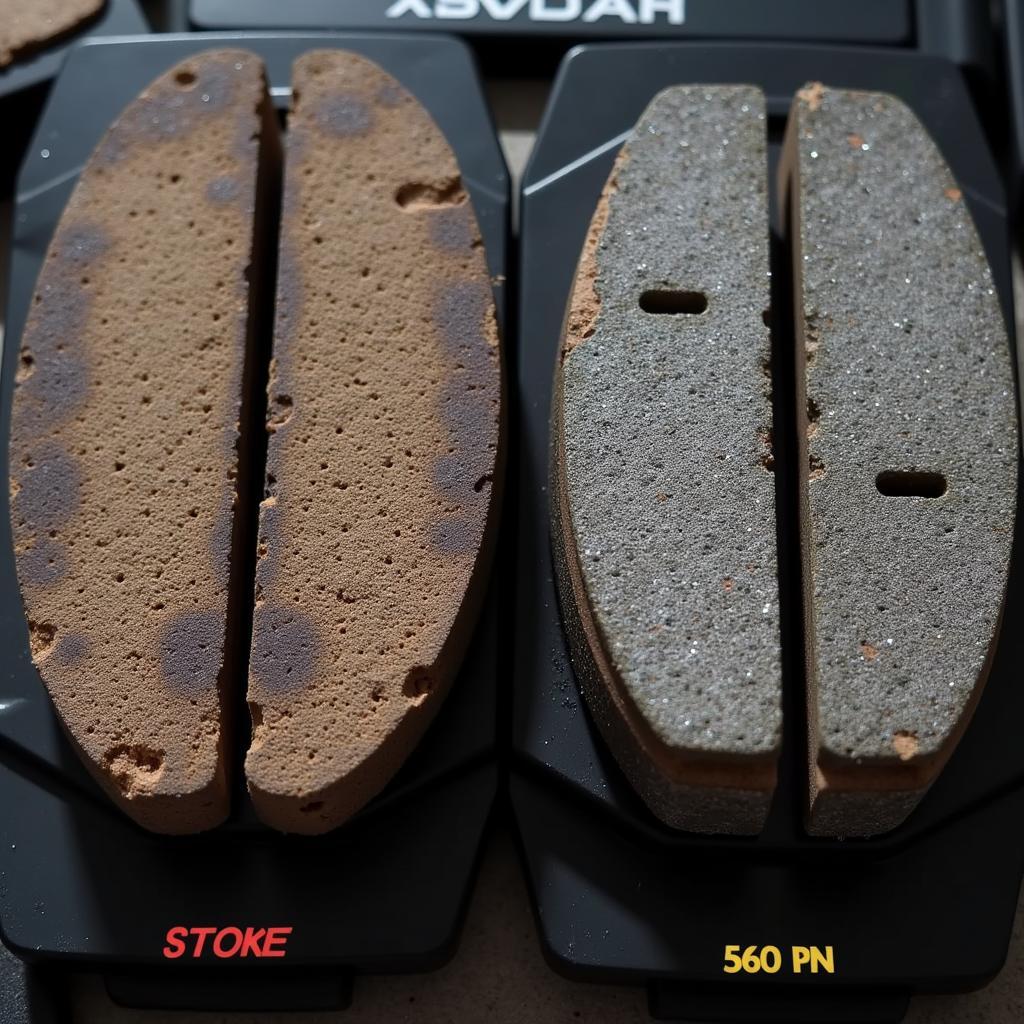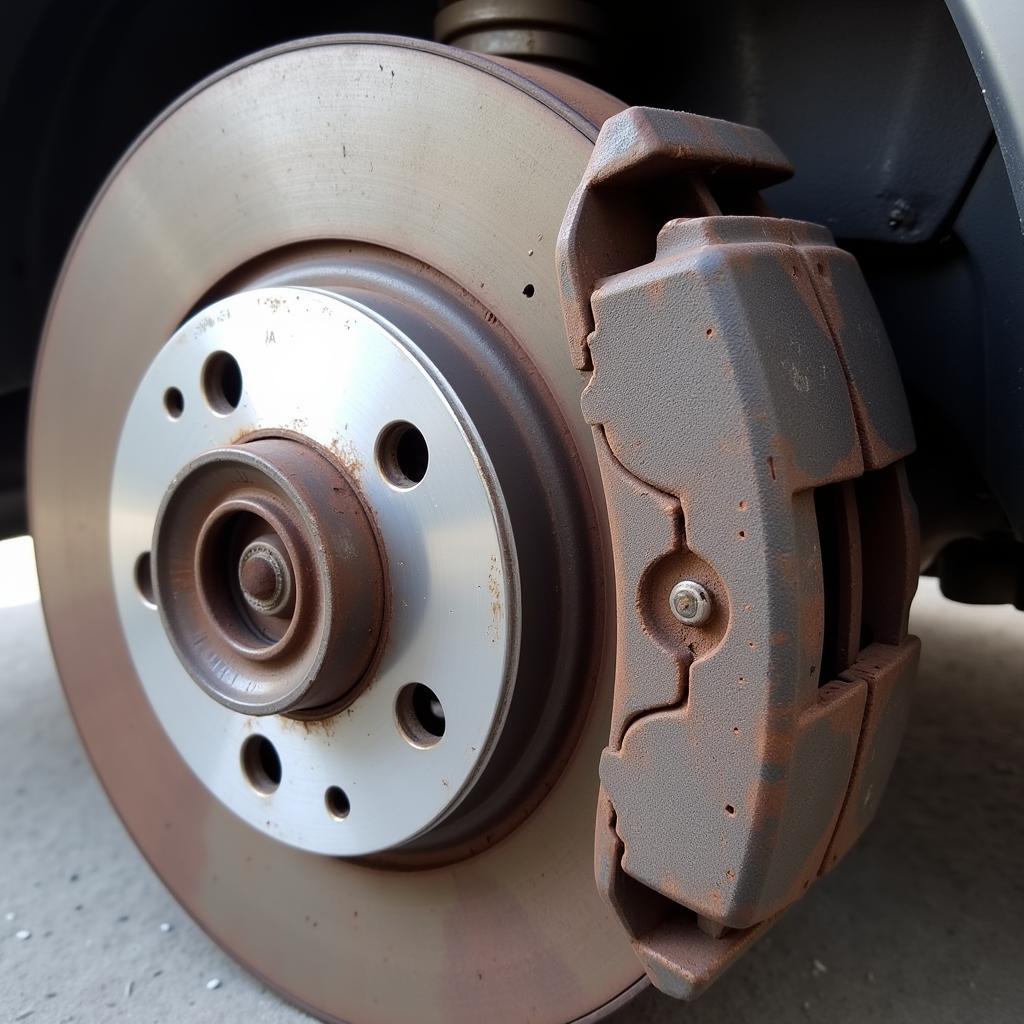A malfunctioning anti-theft system can be a real headache, leaving you stranded with a car that won’t start. One common question that often pops up is: “Is there a fuse for the anti-theft system?”. The answer, like many things automotive, is: it depends.
Let’s delve into the intricacies of car anti-theft systems and fuses to understand how they interact and what you can do to troubleshoot issues.
Understanding the Role of Fuses and Anti-Theft Systems
How Anti-Theft Systems Work
Modern cars utilize sophisticated electronic anti-theft systems, often called immobilizers, to deter theft. These systems work by disabling critical components like the starter, ignition, or fuel pump if they don’t detect the authorized key. When you insert your key (or use keyless entry), the immobilizer chip communicates with the car’s computer. If the codes match, the car starts. If not, the system engages, preventing the engine from starting.
The Function of Fuses
Fuses act as safety devices within your car’s electrical system. They protect delicate electronic components from damage caused by power surges. Each fuse protects a specific circuit. If the electrical current flowing through a circuit exceeds the fuse’s rating, the fuse melts, breaking the circuit and preventing damage to the component.
So, Is There a Dedicated Anti-Theft Fuse?
While a single, dedicated “anti-theft system” fuse is uncommon in modern vehicles, various fuses can impact your anti-theft system’s functionality. These fuses often protect related circuits like:
- Engine Control Module (ECM): The ECM plays a crucial role in the anti-theft system.
- Ignition System: A blown fuse in the ignition circuit can sometimes mimic anti-theft issues.
- Fuel Pump: Some cars cut off fuel supply as part of the anti-theft strategy.
- Starter: The starter relay, often linked with the anti-theft system, might be on a separate fuse.
Identifying a Potential Fuse Problem with Your Anti-Theft System
If you suspect a fuse might be the culprit behind your anti-theft system troubles, look for these telltale signs:
- The car cranks but won’t start: This is a common symptom of an immobilizer issue and could indicate a problem with a related fuse.
- Rapid flashing security light: A blinking security light often signifies an active anti-theft system, which could be triggered by a blown fuse affecting the system.
- Other electrical problems: If you’re experiencing multiple electrical issues alongside the anti-theft problem, it might point toward a blown fuse impacting multiple systems.
Troubleshooting Anti-Theft Fuse Issues
Before you start pulling fuses, consult your car’s owner’s manual. It’s your treasure map, clearly identifying the location of the fuse box and the specific fuses related to your car’s anti-theft components.
Important Note: Dealing with car electrical systems can be risky. If you’re not comfortable working with fuses, it’s best to seek help from a qualified mechanic.
Tools You Might Need:
- Owner’s Manual: Your primary guide to fuse locations and functions.
- Fuse Puller: This handy tool helps remove fuses without damaging them.
- Replacement Fuses: Keep a variety of fuses handy that match the amperage ratings specified in your owner’s manual.
Steps to Check Your Fuses:
- Locate the fuse box(es). Your owner’s manual will guide you to their location, often under the dashboard, under the hood, or in the trunk.
- Identify the relevant fuses. Using your owner’s manual, locate the fuses related to your car’s anti-theft system components, like the ECM, ignition, fuel pump, and starter.
- Inspect the fuses visually. Look for any fuses that appear burnt, melted, or have a broken wire.
- Test the fuses. Using a multimeter or a test light, check for continuity across the fuse terminals. If there’s no continuity, the fuse is blown and needs replacement.
- Replace blown fuses. If you find a blown fuse, replace it with a new one of the same amperage rating.
FAQs About Anti-Theft Systems and Fuses
Q: Can I just remove the anti-theft fuse to disable the system?
A: While technically possible in some older vehicles, we strongly advise against it. Tampering with your anti-theft system can lead to unforeseen problems and might even be illegal in some areas.
Q: I replaced the fuse, but the problem persists. What now?
A: Fuses rarely blow without reason. If replacing the fuse didn’t solve the problem, the underlying issue likely lies elsewhere in the electrical system or with the anti-theft system itself. It’s best to consult a qualified mechanic or an auto electrician for further diagnosis.
Q: Can aftermarket devices interfere with my anti-theft system?
A: Yes, aftermarket installations like remote starters or car alarms, especially if not installed correctly, can sometimes interfere with your car’s anti-theft system. If you’ve recently installed any aftermarket devices, consider disconnecting them temporarily to see if the issue resolves.
Need Expert Assistance with Your Car’s Anti-Theft System?
Anti-theft systems are complex, and troubleshooting them often requires specialized knowledge and tools. If you’re struggling with anti-theft issues or other automotive problems, Cardiagtech can help. We offer a range of professional diagnostic and programming services to get your car back on track.
Contact CARDIAGTECH today, and let our experts diagnose and resolve your car troubles quickly and efficiently.
For more information about our services and products, visit Cardiagtech.


